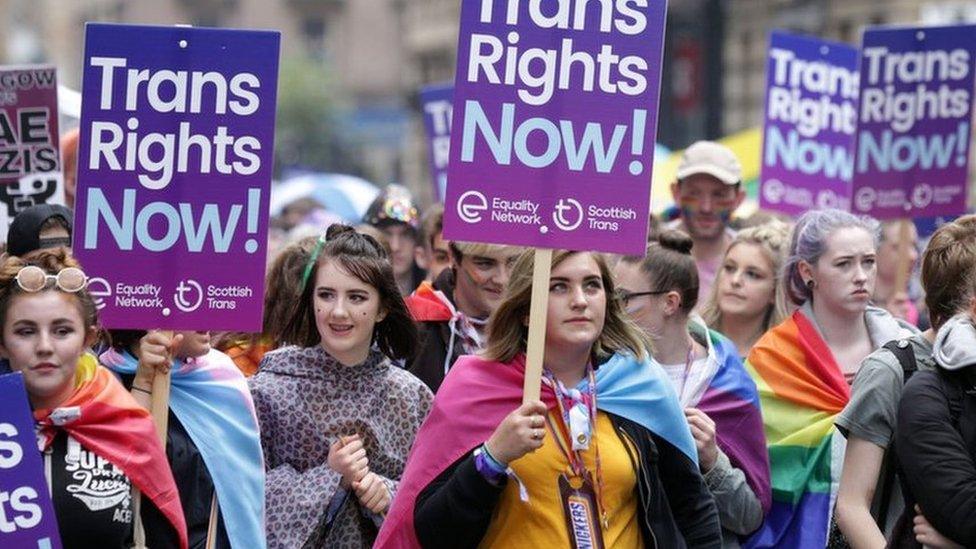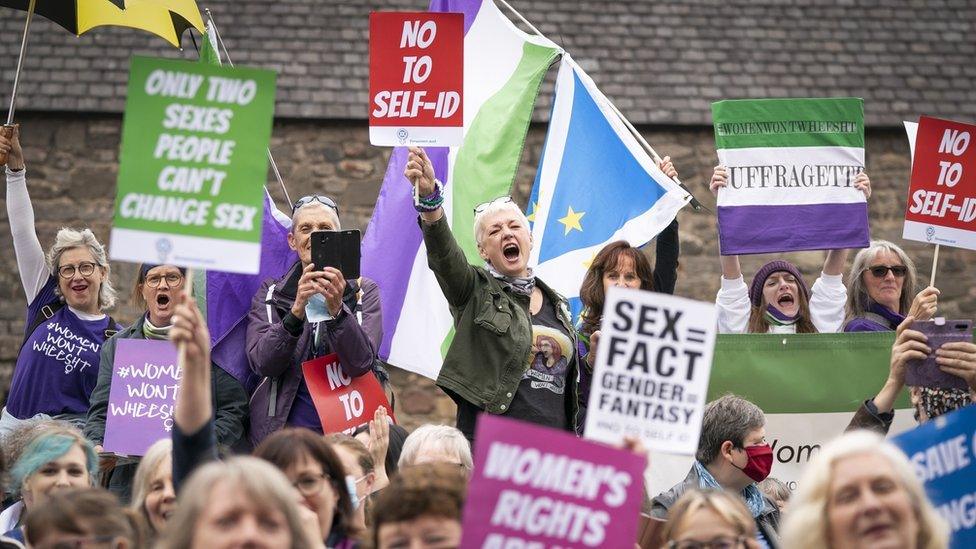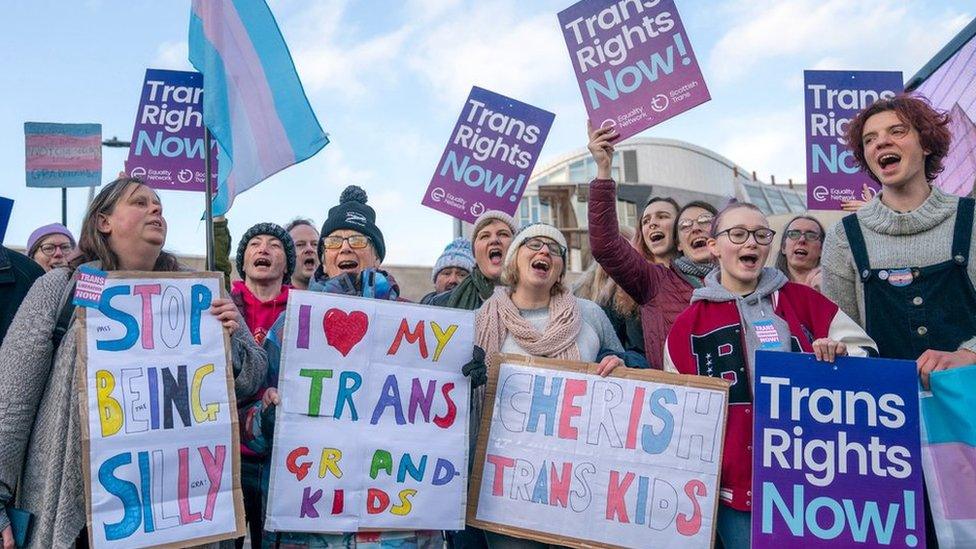Gender recognition reform bill tabled at Holyrood
- Published

The Scottish government has tabled legislation at Holyrood to make it easier for people to change their legally recognised gender.
Ministers say the current process takes too long and is too invasive, causing distress to a vulnerable minority.
However campaigners have raised concerns about the changes potentially having an impact on women's rights.
Social Justice Secretary Shona Robison insisted the plans would not create new rights or change those women have now.
And with four out of the five parties at Holyrood backing reform in their election manifestos last year, the changes are likely to be approved by parliament in some form.
The Gender Recognition Reform (Scotland) Bill, external would make changes to the process by which people can obtain a gender recognition certificate (GRC) - the legal recognition of a trans person's "acquired" gender.
At present, people apply to a UK gender recognition panel and must provide a medical diagnosis of gender dysphoria, external - a mismatch between the biological sex they were born with and the way they see and describe their gender - as well as evidence they have lived in their acquired gender for at least two years.
The Scottish government wants to change this so that applications are handled by the Registrar General for Scotland, with no need for medical reports and the waiting time reduced to a total of six months.
The age at which people can apply would be reduced from 18 to 16.
However, applicants would still need to swear that they intend to remain in their acquired gender for life, with a false declaration to be a criminal offence.
What reforms are being proposed and why have they proved so controversial?
Some groups have voiced concerns that the proposals could erode women's sex-based rights, and access to women-only spaces and services including hospital wards and refuges.
And the Equality and Human Rights Commission has urged the government to pause the reforms for more detailed consideration, saying the current GRC system "provides the correct balanced legal framework that protects everyone".
But Ms Robison told MSPs that "trans people in Scotland risk inequality, harassment and abuse simply for living their lives - they are amongst the most marginalised in our society".
She said the existing gender recognition system was "intrusive and invasive, overly complex and demeaning", saying that many trans people did not even apply due to this.
And she stressed that the new bill "does not introduce new rights or remove rights", or change public policy on single-sex services or access to toilets and changing rooms.
She said: "We are not introducing new rights for trans people, and importantly we are not removing or changing any for women and girls."

Opponents of the reforms have protested outside the Scottish parliament
Having been repeatedly delayed in previous years, the legislation now looks set to pass with the SNP-Green government holding a majority of seats at Holyrood.
And while some SNP politicians have previously questioned the plans, Labour and the Lib Dems are also in favour of a more streamlined system.
Both parties back removing the need for medical reports from the process, and say the plans should go further by also recognising non-binary people who identify as neither men nor women.
The Scottish Conservatives are the only party which did not specifically support reform in their 2021 election manifesto, and have called for women's rights to be "paramount" in the debate over gender reform.
MSP Meghan Gallacher said improvements to the system "would be beneficial for trans people", but said the proposals as drafted "do not protect women's rights".
She said: "They do not offer enough protection for women's safety. The concerns of women are legitimate. They are reasonable, they are honestly and sincerely held. The cabinet secretary should listen again to the valid concerns of women who feel their rights are under threat."
Ms Robison said MSPs should look at the evidence from countries which have passed similar reforms, saying that "all of the evidence shows that the threat to women's and girls safety comes from predatory and abusive men, not the trans community".
The legislation will first go to Holyrood's equalities committee for consideration - a process which may take several months before any votes are held in the chamber.
Both Ms Robison and Presiding Officer Alison Johnstone urged MSPs to be respectful in the debate of the bill.
This was echoed by Labour's Pam Duncan-Glancy, who said the discussion around trans rights had become "toxic for everyone involved".
She said more should be done to prevent "hateful and abusive rhetoric" from dominating.
- Published8 December 2023
